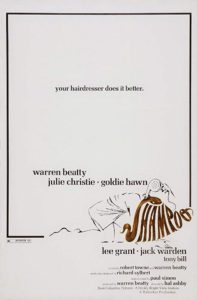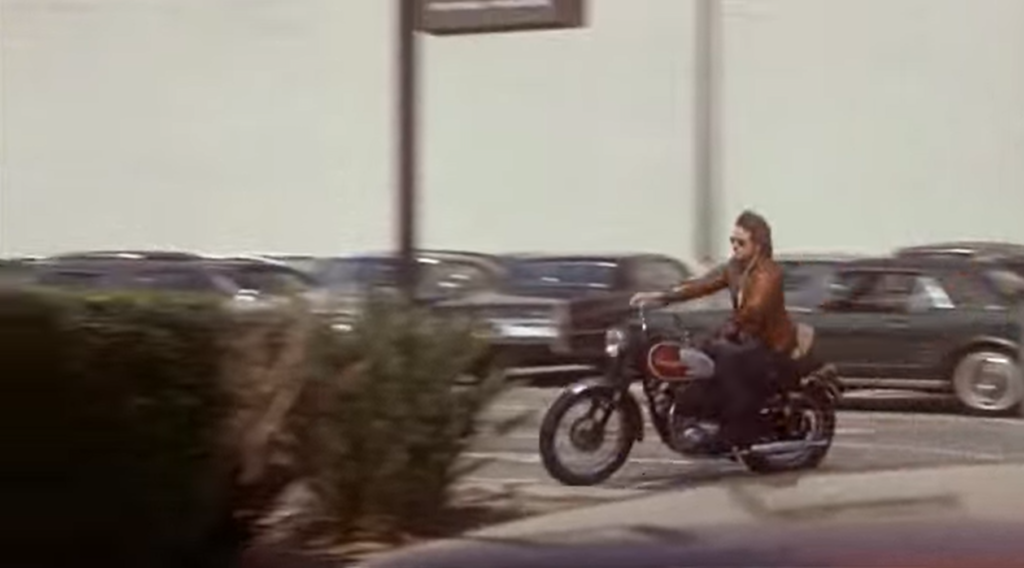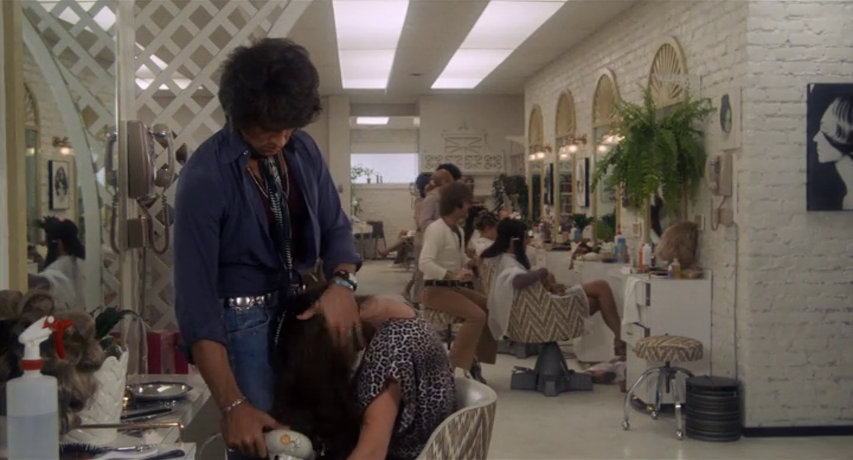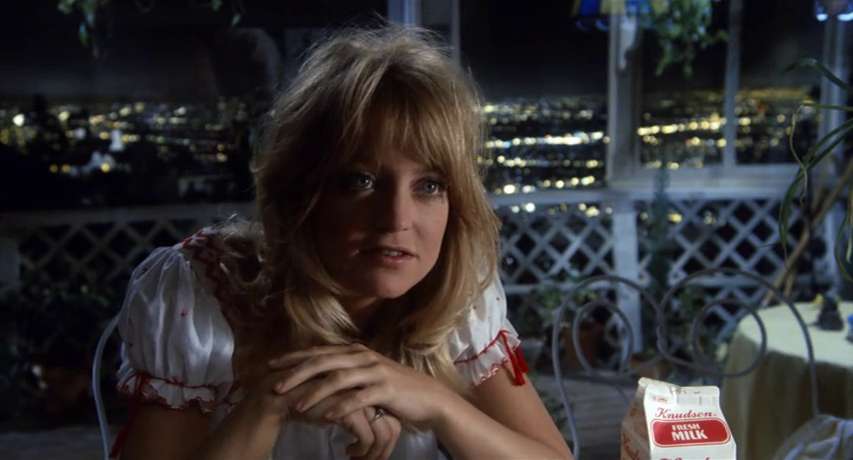|

Synopsis:
A hairdresser (Warren Beatty) lies to and cheats on his steady girlfriend (Goldie Hawn) while bedding the wife (Lee Grant), daughter (Carrie Fisher), and mistress (Julie Christie) of the man (Jack Warden) he’s hoping to secure funding from to open his own salon.
|
|
Genres, Themes, Actors, and Directors:
- Goldie Hawn Films
- Hal Ashby Films
- Julie Christie Films
- Lee Grant Films
- Love Triangle
- Warren Beatty Films
- Womanizers
Review:
Warren Beatty and Robert Towne co-wrote this satire (directed by Hal Ashby) about the vacuous lives of various Hollywood denizens, both rich and aspiring-rich, who mostly want sexual satisfaction and financial freedom but occasionally (like Hawn) show leanings towards something a little more wholesome — say, kids. It’s a depressing yet amusing farce, set during Nixon’s triumphant election over Humphrey in 1968, presumably to show that self-absorbed individuals may merit leadership by equally self-absorbed politicians. However, the primary focus is on George (Beatty) as he zips around L.A. (helmetless) on his Triumph motorcycle:

doing women’s hair while hopping from one bed to the next. Beatty plays on his own public image as a sexual Lothario, ultimately coming across as hedonistically distracted at the cost of any other considerations (including loyalty, honesty, or the chance to open his own business). The most charitable character by far is Hawn, who thankfully has other options available to her.
Redeeming Qualities and Moments:
- Warren Beatty as George

- Laszlo Kovacs’ cinematography


Must See?
No, but it’s worth a one-time look.
Links:
|





2 thoughts on “Shampoo (1975)”
Not must-see.
I’d sort-of forgotten this lopsided paean to (Beatty and) the permissiveness of the late ’60s. Halfway-through the film, at a party full of people eagerly awaiting election returns, a strong suggestion comes through one of the many television sets that such permissiveness may be a thing of the past with the incoming Prez. (Nixon himself appears on a set to let us know, bizarrely, that “This will be an open administration.” and that the goal is “to bring the American people together.” Ha!)
Towne and Beatty’s screenplay suggests that ’60s free love wasn’t as satisfying as many thought. But it also strongly suggests near the end (in the film’s best scene – Beatty returning home to find Warden waiting for him) that the ’60s had nothing to do with it – and that a problem exists in any decade, when men and women treat each other as objects.
But that’s only 5 minutes of the film, near the end. As for all the rest:
See Warren cut hair. Cut, Warren, cut.
See Lee, Julie and Goldie obsess on their hair – and on Warren. Obsess, ladies, obsess.
It’s a long haul to a perfunctory ‘message’ at the end.
Still… though I found the rewatch mostly tedious (for a satire, it’s much more of a drama than a comedy; Carrie Fisher gets the best genuinely funny scene – until it takes a sharp curve) – this movie may have my second favorite Goldie Hawn performance (after ‘Death Becomes Her’). Not that it’s great acting, but I admire her gradual sense of control and sense of self.
Very much a film of its time and although generally held in high regard even today it’s much less relevant now and not really remembered and discussed much.
I’ve never really been much of a fan but haven’t seen it since the ’80s. Not must see these days.